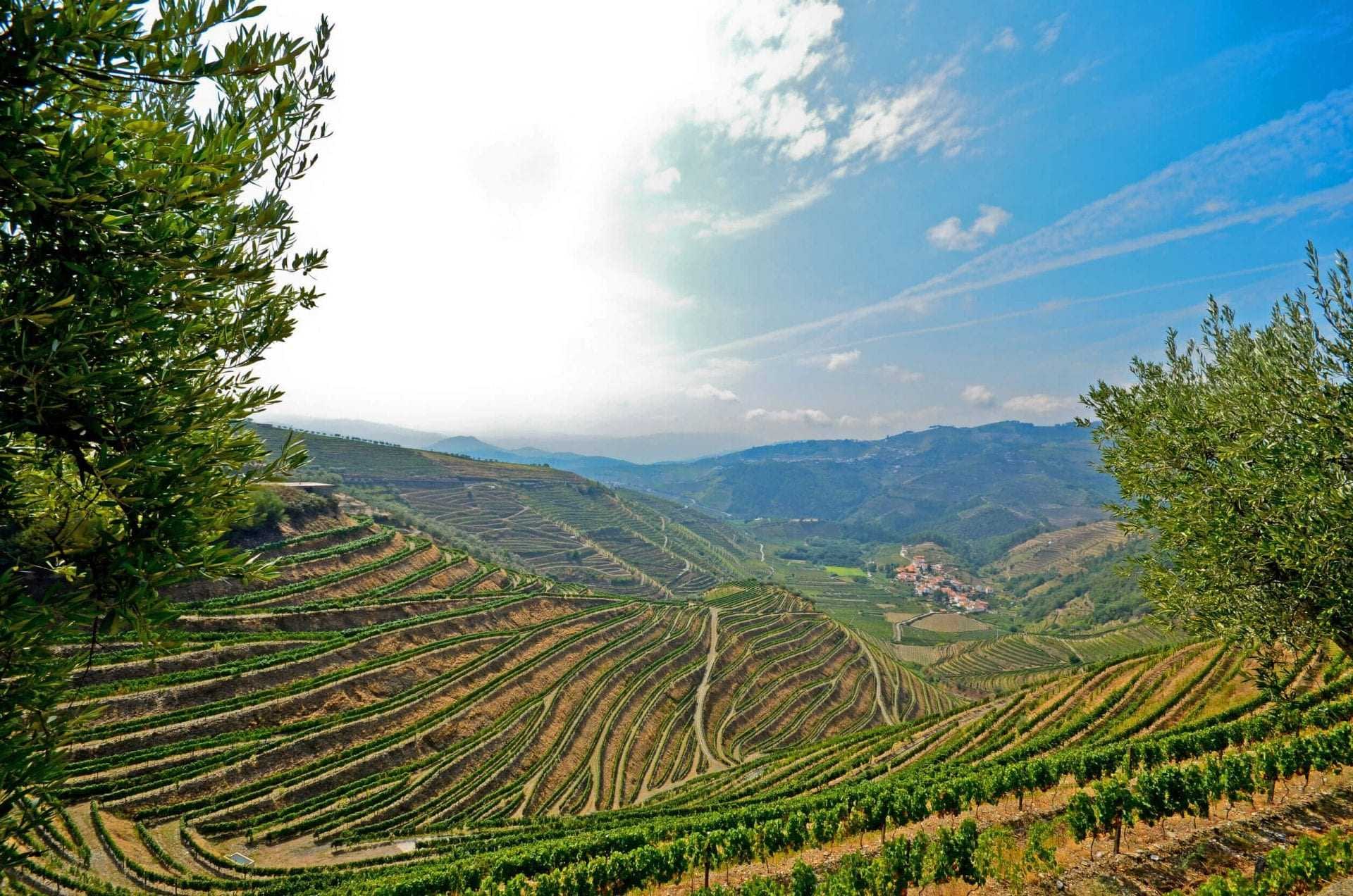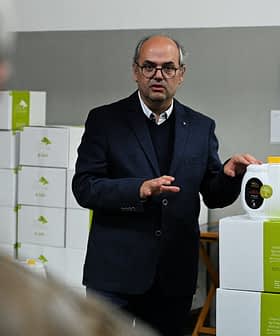Olive Oil Increasingly Popular Among Douro Wineries
Portugal’s region of Douro is known for its Port and still wines, but more winery groups are becoming interested in producing and selling regional olive oils too.
 Quinta das Vargellas Olive Groves (Courtesy of The Fladgate Partnership)
Quinta das Vargellas Olive Groves (Courtesy of The Fladgate Partnership)Although vines and olive trees share a common ground in Portugal’s Douro region, it was not long ago that wineries began to pay more attention to olive oil production, adding estate-labeled olive oils to their wine portfolios.
This is the case at the Fladgate Partnership, with various Port wine brands and luxury hotels. Quinta de Vargellas is one of the Douro estates where grapes are grown for its Taylor’s Port wine.
After producing olive oil for its own consumption, in 2002 the company decided to start selling its Azeite Virgem Extra (EVOO) Quinta de Vargellas.
“Olive groves are cultivated in a sustainable manner, without using chemical fertilizers or pesticides. The trees are carefully handled and preserved to produce exceptional quality olive oils and because they help sustain the vineyard’s biodiversity,” said Ana Margarida Morgado, Fladgate’s public relations Director.
Three thousand olive trees at Vargellas occupy some ten hectares, approximately 8.5 percent of the estate’s land. Most trees are over fifty years old and many are centenary.
See Also:The best olive oils from PortugalDouro is a fertile land where olive trees are an important crop. The region’s microclimate, with elevated temperatures and low rainfall, is particularly suitable for olive production. The mostly schist soils are responsible for the consistency, darker colors, and more intense oil flavors.
Madural, Verdeal, Cordovil and Galega are the main olive varieties planted in Douro, probably Portugal’s region with the largest number of centenary olive groves.
The staff who oversees the vineyards usually takes care of olive trees, but oil production is mostly outsourced. In the case of Vargellas, olives are taken to the mill of Casa Agricola Roboredo Madeira (CARM) in Douro Superior. Other wineries send their olives to Mirandela, home of the Casa de Santo Amaro.
Most oils are sold at the wineries’ visitors centers. In the case of Vargellas, they are also available at Fladgate’s luxury hotels and other gourmet stores. Some bottles even go to export markets, just as those of wineries Quinta do Vale Meão and Quinta do Crasto.

Douro Valley, Portugal
An essential ingredient of regional cuisine, changing consumer habits that pay more attention to healthy foods have contributed to making olive oil increasingly important in Portugal. A major transformation has been that olive oil has replaced butter as a bread complement in most Portuguese restaurants.
The growing demand for olive oil also derives from Portugal’s enhanced gastronomic reputation and a tourism boom, particularly in Porto and Douro. Wine tourism offers a unique platform to make olive oil a more prominent product and an indispensable element in restaurants related to the wine business or located within visitors centers, not to mention that olive groves are an added feature of vineyard visits.
The synergy between wine and olive oil has also become evident at events as Essência do Vinho Porto, Portugal’s top annual wine event, where many Douro wineries showcase olive oils in their stands. There’s a devoted olive oil tasting area at Lisbon’s Encontro com Vinhos e Encontro com Sabores and master classes in sensory assessment.
Olive oil will remain a complementary product at Fladgate as no new tree plantings are planned. But other wine groups as Symington, which already produces olive oils under the Quinta do Ataíde and Quinta de Malvedos brands, might be paying more attention to olive oil production considering that in 2016 they bought a property in Vilariça Valley with a large extension of organically-farmed olive trees.
Other estates bottling their olive oils are Quinta das Carvalhas, Quinta do Vallado, Quinta de la Rosa, Quinta da Roêda, Quinta da Boavista, Quinta das Tercedeiras, Quinta do Passadouro, Quinta do Noval, Quinta do Portal, Cadão, Quinta dos Murças, Quinta da Pacheca, Quinta da Nossa Senhora do Carmo, Quinta do Ventozelo, and Quinta de Porrais.
Gerações de Xisto is one of the youngest Douro projects blending wine and olive oil. It depicts the commitment of younger generations to their Douro origins and seeks to honor and highlight the region’s landscape and heritage. Its Chousas Nostras EVOO is born from centenary olive trees with very low yields, but high-quality olives.
“We want to create a future from our respect to the past, tradition and values, by extracting new aromas from the very old trees, preserving the rural heritage, and creating employment,” affirmed Federico Lobão, one of the project’s partners.








